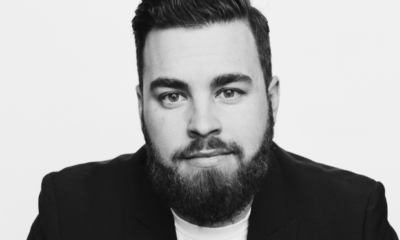Life
How to Be Less Self-Centered and More Community Focused for Fun and Profit

Do you want to know the biggest thing standing between you and success? It’s your big fat ego. It’s the focus you put on yourself, both positive and negative, that negatively affects your ability to make meaningful change and ultimately become successful.
It’s those thoughts that run around in your brain, day in and day out, telling you to focus on yourself and your own problems while leaving others to deal with their own stuff. It’s the overwhelming amount of pressure you put on yourself to perform and succeed despite all odds which is, ironically, bringing you down.
Most of us wouldn’t call ourselves self-centered, but chances are the majority of us are. The ego is what allows us to take care of ourselves, but sometimes it can become overbearing and make us forget our deeper purpose.
Here are three counter-intuitive mindset shifts you need to adopt to be happier and more successful while becoming less self-centered and more community-focused:
1. Develop self-acceptance
One of the biggest things that stands between you and success is a lack of self-acceptance.
Learn to accept yourself for you, and you will redefine what it means to be successful. This isn’t your typical “self affirmation” mumbo jumbo that so many self-help gurus talk about. I’m not suggesting you stand in front of a mirror and tell yourself how great you are. Instead, learn to be honest with yourself about your strengths and your weaknesses and then be comfortable with not having the answers.
For instance, if you are trying to start an online business and don’t know the first thing about building an eCommerce website, don’t try to “self affirm” yourself into the belief that you can build the next Amazon.com from scratch.
Instead of all that, remind yourself that, although you are a beginner, you can make a small step progressing towards your goal by using tools and resources available to you. There is no way you can go from zero to hero in an instant. It takes practice and continuous effort.
“The worst loneliness is to not be comfortable with yourself.” – Mark Twain
2. Have confidence in others
Stop thinking of yourself as the lone wolf, the secretive genius, or the obsessive entrepreneur. People who are competitive and ambitious tend to look at every opportunity as one that has winners and losers. They think of the world in terms “us versus them” rather than “us AND them”.
If you want to truly tap into your potential, you need to stop trying to do everything yourself and develop meaningful relationships with others.
Having friends is an important part of finding happiness and lasting success, but there is something else which is often missing from modern day relationships.
That missing element is confidence; the ability to rely on those around you for help and guidance. It’s not enough to simply spend time with people you find interesting or engaging, you need to develop a deep sense of confidence in them. Trust your instincts and have the confidence in others to ask for help and guidance.
3. Contribute to the community
Research and anecdotal evidence from around the world suggests that one of the best ways to find lasting happiness is to find ways to contribute to your community. For the ambitious, career driven and money-minded among you, this may seem like a complete waste of time, but there is little doubt that by doing well for your community, you will ultimately do well for yourself.
Past performance from individuals and organisations that were able to tap into the collective subconscious and serve some deeper need for their communities proves that people are well-rewarded for their selfless actions.
“With faith, discipline and selfless devotion to duty, there is nothing worthwhile that you cannot achieve.” – Muhammad Ali
If you want to be happier and more successful, look at how you can contribute to your community. We are all connected in one way or another, but chances are that you have a unique perspective and insight into one or two micro communities that would greatly benefit from your help.
Remember that help can take many forms, and you don’t have to go about reinventing the wheel to contribute to the community of your choice. Look holistically at what you are good at, then take that initial step towards making a contribution.
It’s easy for me to tell you to change your mindset and implement these guidelines, but it is another thing entirely to start to do them. We live in a world that is more connected than ever before, yet somehow we continue to find ourselves drawn inward, focusing on our own goals, issues and problems.
We are in dire need of more selfless action on this planet, but that doesn’t mean you have to completely abandon your personal objectives, hopes and dreams. If you want to create a change in your life and have a greater impact on society as a whole, I heartily suggest adopting all three of these strategies.
What have you done recently do give back to others? Share with us below!
Life
Why Moving to a New City Can Change Your Mindset
Discover how moving to a new city boosts neuroplasticity, builds resilience, and reshapes your mindset

Relocation is always a challenge. Rebuilding and restarting your life requires you to step outside of your comfort zone. (more…)
Change Your Mindset
The Hidden Reason You Can’t Stay Consistent
If motivation keeps failing you, the real issue isn’t discipline. It’s the identity shaping your habits and long-term success.

Success often looks like a time-management problem. You buy a planner, set reminders, and hope that next week will be different. For a few days, it works. Then stress hits, motivation drops, and old patterns return. (more…)
Did You Know
How Skilled Migrants Are Building Successful Careers After Moving Countries
Behind every successful skilled migrant career is a mix of resilience, strategy, and navigating systems built for locals.

Moving to a new country for work is exciting, but it can also be unnerving. Skilled migrants leave behind familiar systems, networks, and support to pursue better job opportunities and a better future for their families. (more…)
-

 Business4 weeks ago
Business4 weeks agoHow Smart Brands Use Instagram Data to Outperform Competitors
-

 Business4 weeks ago
Business4 weeks agoThe Paradox of Modern Work: Can Tech Make Us More Human?
-

 Change Your Mindset3 weeks ago
Change Your Mindset3 weeks agoThe Hidden Reason You Can’t Stay Consistent
-

 Change Your Mindset3 weeks ago
Change Your Mindset3 weeks agoThe Real Psychology Behind Quitting Too Soon
-

 Entrepreneurs2 weeks ago
Entrepreneurs2 weeks agoThe Six Pillars That Ground Purpose-Driven Leadership (The Berenyi Life Blueprint)
-

 Business3 weeks ago
Business3 weeks agoDIY vs Delegate: The Real Reason You’re Burned Out
-

 Business3 weeks ago
Business3 weeks agoHow AI Agents Can Quietly Expose Your Business to Serious Risk
-

 Life3 weeks ago
Life3 weeks agoWhy Moving to a New City Can Change Your Mindset





























